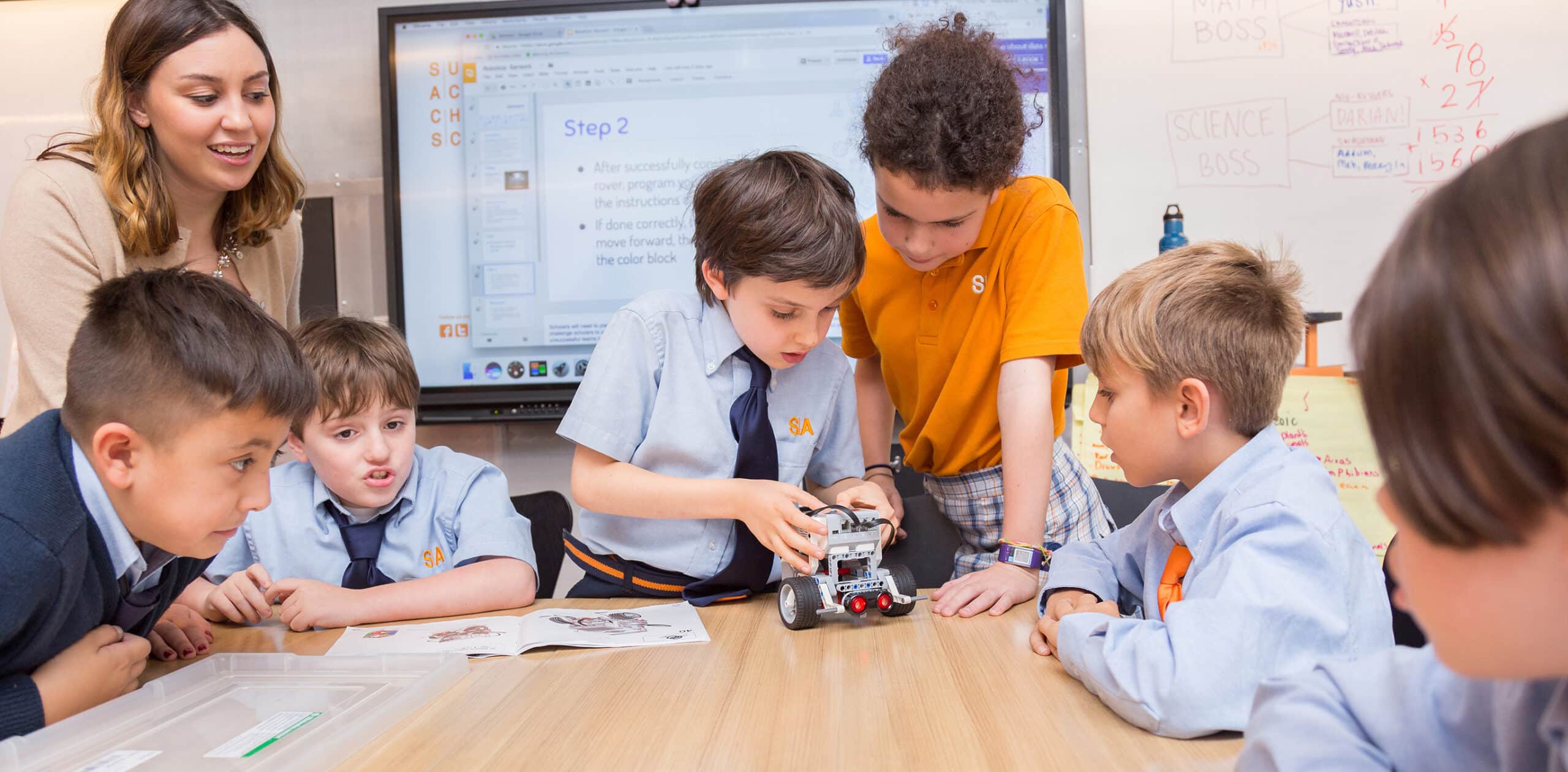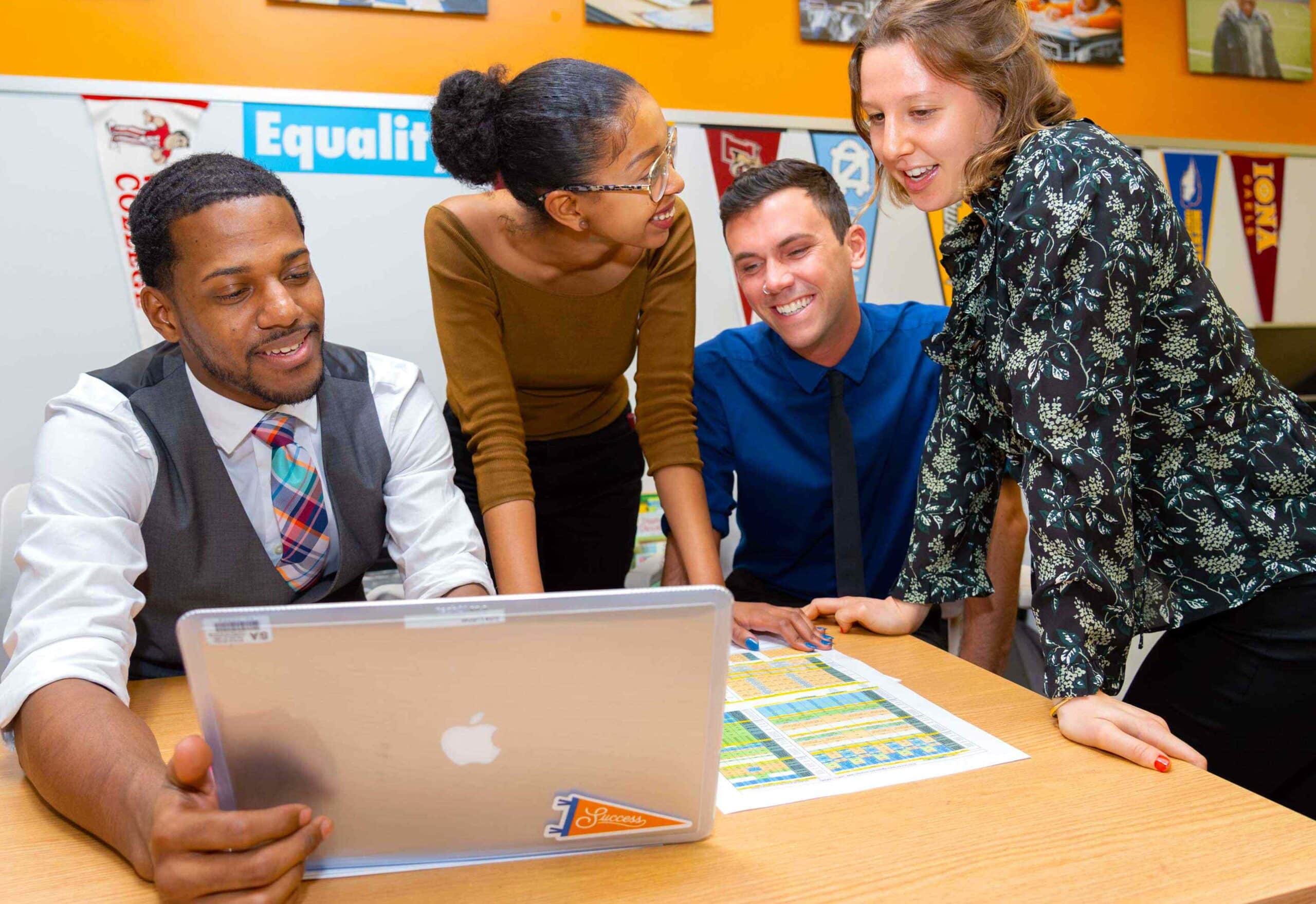Three tips for encouraging intellectual discourse

During my senior year of high school, my AP Euro teacher Mr. Farag had our class review and grade our own quizzes. These were huge mental lifts as I debated answers and historical facts with my classmates while Mr. Farag facilitated from the front of the room. It was exhausting, but some of the most fun I’ve ever had in a classroom. While lectures from other classes have faded away, I can still remember the drama of the French Revolution, the rise and fall of the Prussian Empire, and point out the ways that Game of Thrones is really just a retelling of the War of the Roses with some dragons in the background.
Mr. Farag encouraged us to learn through discourse. He set up his classroom, lessons, and curriculum around these discussions. By debating with my classmates, and with Mr. Farag, we did the tough work of puzzling out the nuances of history and questioning the content in our textbook. I remembered what I learned because I did the hard work to figure it out — and not only was I proud of what I accomplished, I had fun doing it.
Discourse is a key feature of Success Academy’s educational model. We are committed to creating classroom cultures that allow for student-driven thinking and learning. Creating an environment that fosters discourse is more than just the way one arranges their classroom: it’s about creating a space that’s safe for students to push themselves intellectually, try new things, and share their big ideas. Here are three ways you can encourage rich discourse in your classroom:
Have Students Learn from Each Other, Not Just Their Teacher
As a teacher, step into a facilitator role and let your students do the heavy intellectual lifting. Kids have amazing insights, and can learn a lot from one another, but they sometimes need help sharing their big ideas. A simple “Why?” Or “Can you elaborate on what you just said?” go a long way in encouraging students to speak their minds, share their knowledge, and verbally grapple with tough concepts together as a class. You can use your voice as the teacher to ask the questions and guide discussion while your students explore and provide the ideas.
Allow the Freedom to Fail
It’s okay to get the wrong answer, fall over, or not succeed the first time we try something new. By adopting an environment where students feel comfortable making mistakes, they can explore big ideas and debate with their classmates without worry. Sometimes, we learn more from our mistakes than our successes, so take the time to encourage your students to sit, learn, and explore where they went wrong as you guide them to understanding and learning. When they do get to the right answer or an interesting idea, the method in which to get that answer sticks, but only because they had the chance to struggle and get there.
Give Constructive and Motivating Feedback
In a recent fourth grade math class at SA, one of our students gave the following feedback to a classmate: “He needs to focus more on reading the instructions, because otherwise his plan won’t be as good as it can be!” That feedback was impactful. This encouragement lifted her classmate up because she believed in him and his abilities even though he made a mistake. The simple acknowledgement that his work “isn’t as good as it could be” speaks volumes about the culture of inclusivity, positivity, and learning that the teacher created within her classroom that allowed her children to thrive.
By empowering students to take charge of their learning experiences, they learn how to learn and develop resilience in the face of challenging problems. If you want support in creating a strong intellectual culture at your school, feel free to reach out!
"*" indicates required fields
Access a wide array of articles, webinars, and more, designed to help you help children reach their potential.
NEWSLETTER
"*" indicates required fields
